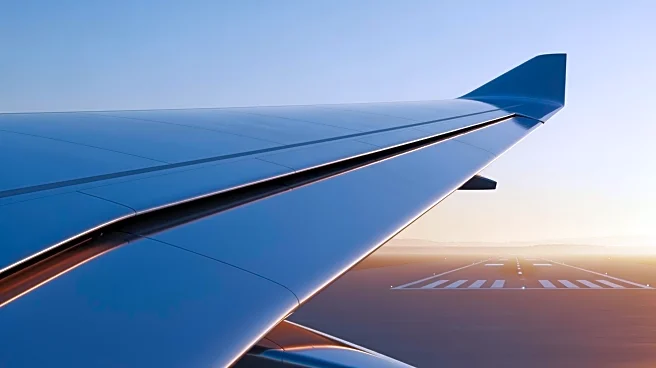What's Happening?
Airbus is experiencing increased demand for its A330neo-based Multi-Role Tanker Transport (MRTT+) aircraft, prompting considerations to double its production output. The Royal Thai Air Force has been secured as the launch customer for the MRTT+, transitioning
from the A330-200 to the A330-800 platform. The first aircraft is scheduled for induction into the conversion line in Madrid next year, with certification expected by 2028 and delivery in early 2029. Airbus has been successful in securing a significant share of tanker contracts, competing against Boeing, and is in discussions with current users and potential new buyers, including Germany and Qatar.
Why It's Important?
The expansion of Airbus's MRTT+ production reflects a growing global demand for advanced military refueling capabilities, which could significantly impact the defense industry. Countries like Germany and Qatar are potential customers, indicating a shift in military procurement strategies towards more efficient and automated refueling systems. This development could enhance the operational capabilities of air forces worldwide, offering strategic advantages in military logistics and operations. The move also positions Airbus as a leading competitor in the military aviation sector, challenging Boeing's dominance.
What's Next?
Airbus plans to continue developing enhancements to the MRTT+, including automating refueling functions and improving camera systems for night operations. The company is working on automating the underwing drogue refueling system, which is still in the definition phase. These advancements could further increase the appeal of the MRTT+ to military customers, potentially leading to more contracts and expanded market presence. Airbus's ongoing discussions with current and prospective customers suggest a robust pipeline of future deals.
Beyond the Headlines
The shift towards automated refueling systems in military aviation raises ethical and operational questions about the reliance on technology in critical defense operations. As countries invest in these advanced systems, there may be implications for military training and personnel requirements, potentially reducing the need for human intervention in refueling operations. This technological evolution could also influence global military strategies and alliances, as nations seek to enhance their air force capabilities.















